Adriacom I Business Services & Immigration
Montenegro Awaits - Let's Make it Yours.
Ladder of Kotor
Many believe that the best way to see the mesmerizing Bay of Kotor is by taking a cruise, but this assertion is probably wrong. Hiking up the Ladder of Kotor, or the ‘Old Montenegrin Road’ as it is locally known, and seeing the fjord-like inlet from above will surely be an unforgettable experience.
The Ladder of Kotor is part of a centuries-old trade route, linking Kotor with the former Royal Capital of Cetinje. Between the 14th and 18th centuries, there were constant power struggles between the Ottomans and Venetians over control of Montenegro’s provinces; only the core around Cetinje managed to remain independent.
Table of Contents
Toggle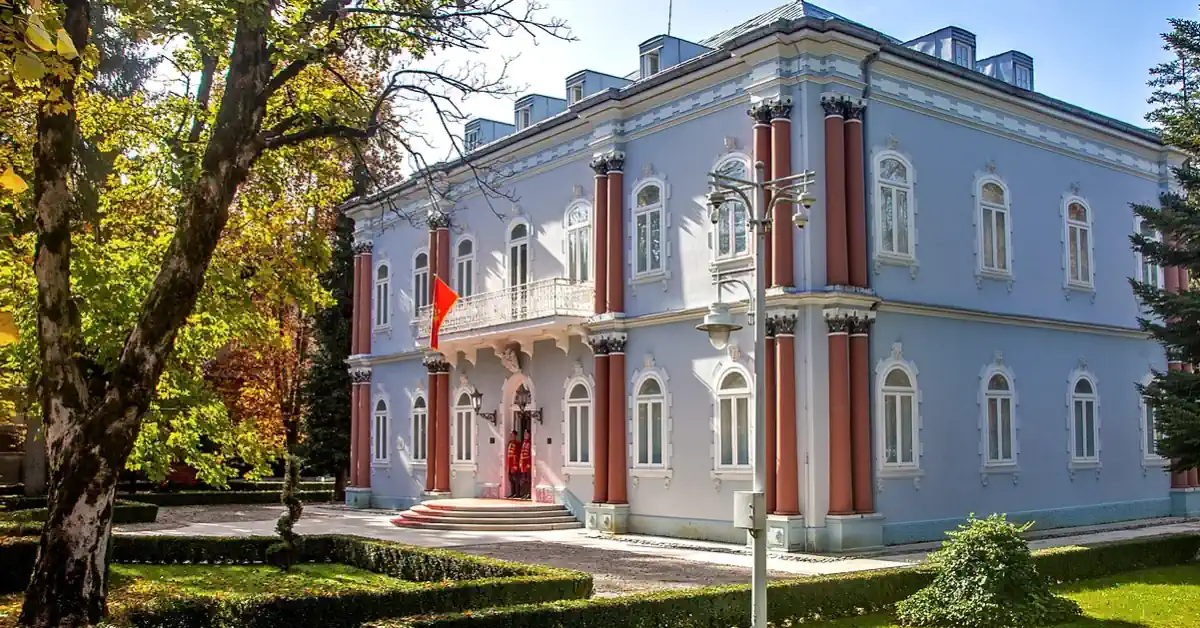
Cetinje
Discover Cetinje, the old Royal Capital of Montenegro. Sitting at the foot of Mount Lovcen, this charming town is also known for its 19th-century architecture.
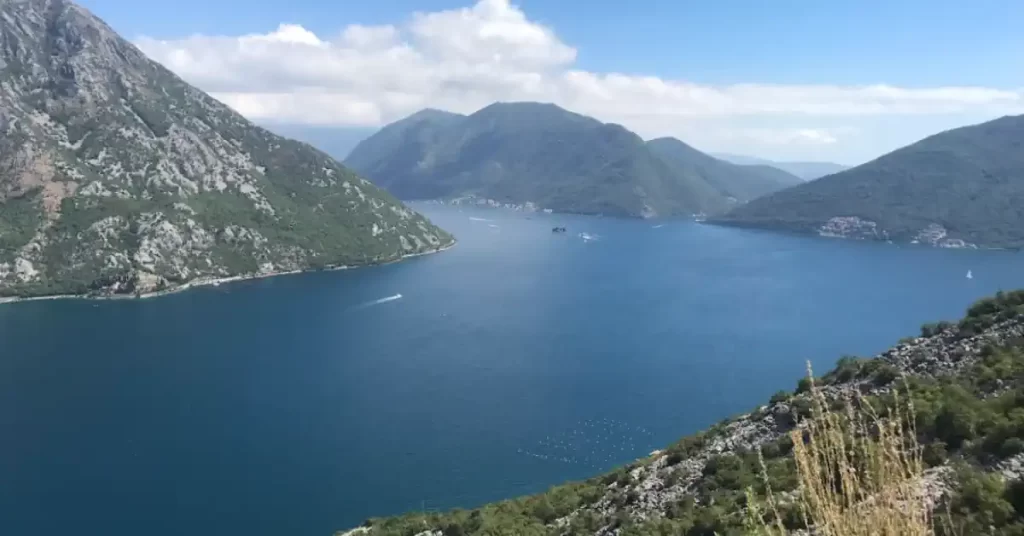
Bay of Kotor
The UNESCO-protected Bay of Kotor connects some of Montenegro’s most beautiful coastal towns, from Herceg Novi and Risan to Kotor, Perast, and Tivat.
Interestingly enough, this steep and narrow window into the world – hard to even call it a road – was one of the few transport links between the capital city and Montenegro’s Adriatic coast. Back in the day, manufactured goods, vegetable oils, flour, salt, and fish produce went up the Ladder of Kotor to be exchanged for meat, dairy, livestock, and wood-based products.
Presumably, even the prince’s snooker table, which today is exhibited in the Biljarda in Cetinje, was dragged along this path. The Kotor Serpentine Road was built during the Austro-Hungarian rule at the end of the 19th century and made the Ladder of Kotor obsolete as a mode of transportation. Today, it is understandably one of Montenegro’s most popular hiking trails.

Kotor Serpentine
Experience picture-perfect views of Kotor from above by taking the scenic Kotor Serpentine. The road is every motorist’s dream.
The Ladder of Kotor Hike
The Ladder of Kotor hike starts from the trailhead next to the old hydroelectric power plant. It is easily accessible From Kotor’s Old Town via the Northern Gate, simply by crossing the Scurda River. From there, you can already see the first in a series of 70 or so switchbacks up the Krstac Pass.
The path starts as a rocky and quite steep mountain trail but delivers fantastic views of the Bay of Kotor and unique angles of Kotor’s City Walls and Kotor Fortress in return – just a couple of minutes into the hike. After around 45 minutes and 260 meters of elevation gain, you’ll reach a tiny hamlet home to just five people and a family tavern, serving simple drinks and snacks.

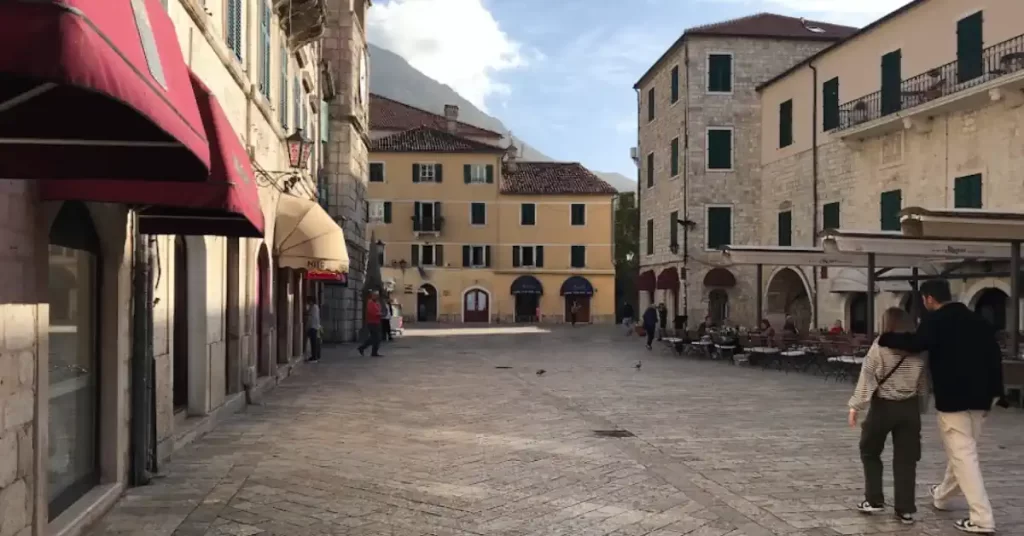
Kotor Old Town
Kotor’s Old Town consists of a maze of narrow cobblestone streets lined with boutiques, cafes, and a good range of restaurants.
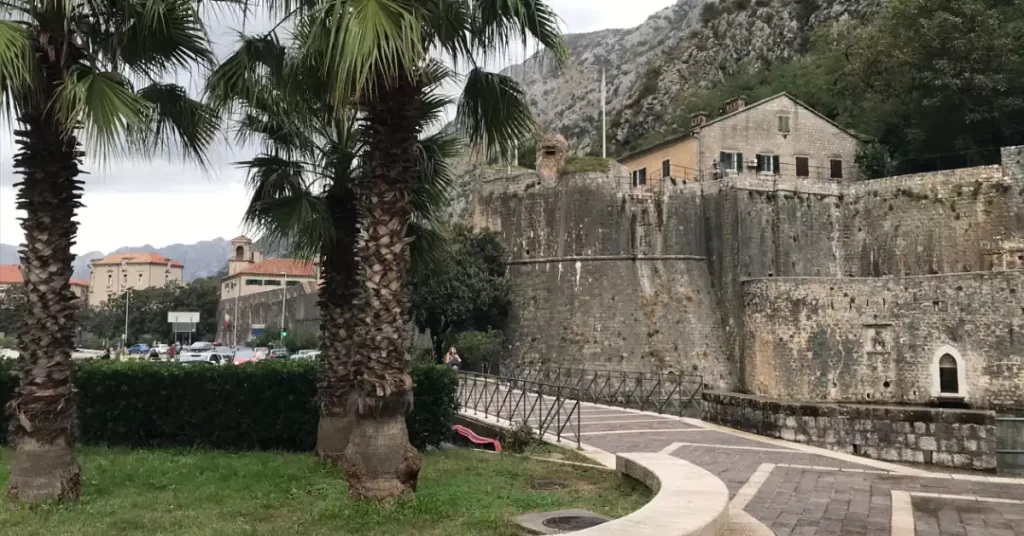
Kotor City Walls
The Kotor City Walls are listed as a UNESCO World Heritage Site. They encircle the entire historic center and include many bastions, gates, and even a church.

Treat yourself to loaves of delicious homemade bread and farm-fresh goat cheese while enjoying the surreal vistas from the cafe’s lofty outdoor terrace. Perched on a hillside overlooking the Bay of Kotor, this authentic hillside eatery delivers some of the best views of Kotor and beyond.
Drinking rakija (mostly homemade grappa or plum brandy) is what the locals drink in Montenegro, so don’t be surprised to see the non-English speaking wife and husband team who run the cafe offering you a glass at 9 am; it’s a permanent fixture of traditional Balkan morning routine alongside freshly-brewed Turkish coffee.
From the cafe, a trail breaks off to the left, taking you to the abandoned Church of Saint Juraj (which has some nice and vibrant frescoes) and further to Kotor Fortress, which may or may not be accessible via a hidden wall passage.
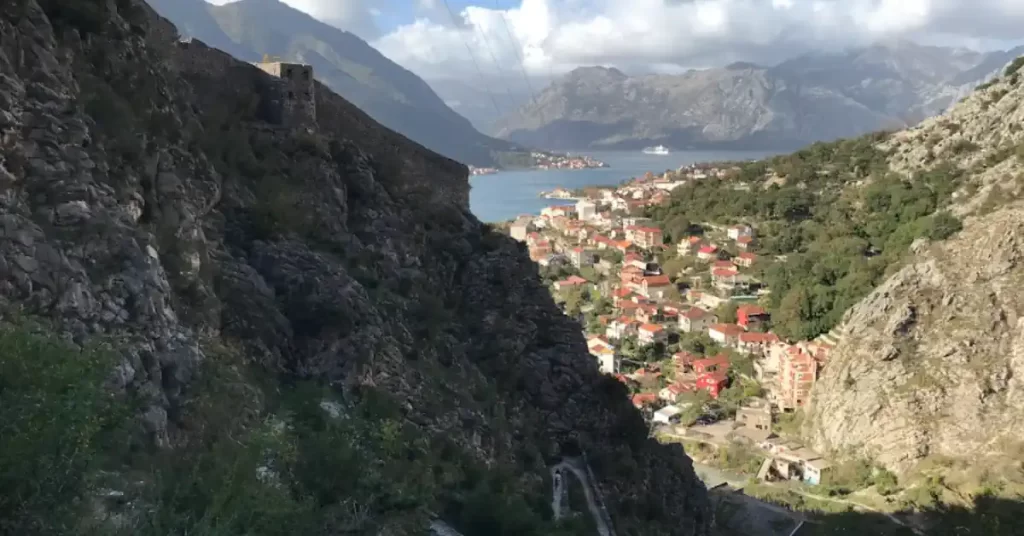
Kotor Fortress
No visit to Kotor is complete without hiking up the 1,350 steps to Kotor Fortress, a centuries-old structure offering breathtaking views of the Bay of Kotor.
With boosted energy levels, it shouldn’t be too hard to reach your next milestone – the Praciste Ridge which sits at about 600 meters above sea level. The views are breathtaking from there and worth the effort, even without having to hike to the top. If you’re in it simply for the views, you won’t gain much completing the final third of the trail.
For everyone else, the remaining 1 – 1,5 hours are characterized by a long and steady ascent through dense forests (no sea views) with an elevation gain of more than 300 meters. The entire Ladder of Kotor trail (uphill) will take the average fit hiker three hours to complete. Going downhill is faster, and you should be able to master the zig-zagging 72 switchbacks within 2 – 2.5 hours.
General Information
- Distance: 6.5 kilometers one way
- Ascent/Descent: 937 meters
- Duration hike up: 3 hours
- Duration hike down: 2 hours and 15 minutes
- It takes the average person 6 – 7 hours to complete the full hike up to the restaurant and back down again, including a restaurant break
- The Ladder of Kotor should not be confused with the Kotor Fortress hike which is a paid and significantly shorter trail
- The trail ends at the Nevjesta Jadrana Restaurant which serves traditional Montenegrin cuisine, the perfect fuel after the strenuous ascent
- The trail itself is in good shape but can be slippery, especially after heavy rain
Hiking Downhill: The Easier Option
There is a reason that you hardly sweat hiking downhill – it is much easier and takes less time. For the average hiker, it takes between 2 and 2.5 hours to complete the 6.5-km-long trail downhill. The path starts at the Restaurant Nevjesta Jadrana, from where you need to traverse the hill downward through dense forest before reaching the Praciste Ridge one hour into the hike, and then further down along the zig-zag stone path.
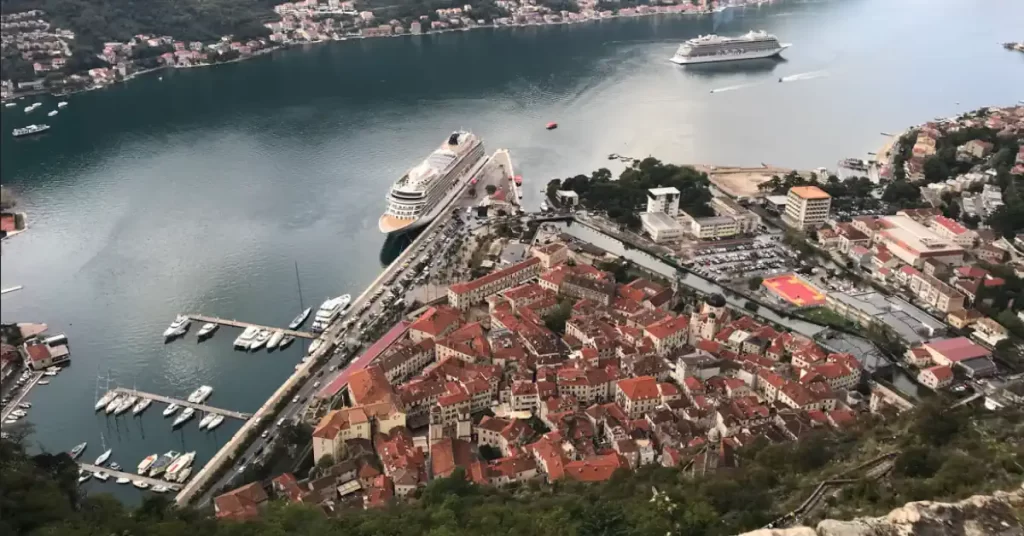
Kotor
Kotor with all its history and charm is one of the prettiest towns in the Mediterranean and a perfect weekend getaway or longer holiday destination.
Surrounding Areas
The Krstac Pass builds the dividing line between coastal and continental Montenegro and sits at the foot of the Lovcen National Park. Many experienced hikers continue from here toward Jezerski Vrh (1,657 meters), a beautiful mountain peak that houses the Njegos Mausoleum. Once there, you can decide whether to take the 461 steps leading up to the mausoleum or the narrow pathway.
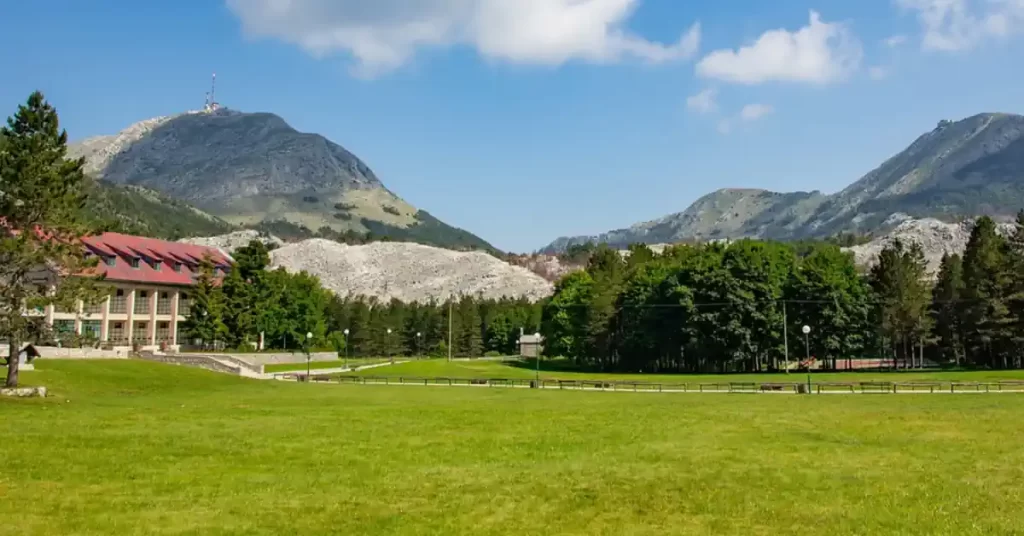
Lovcen National Park
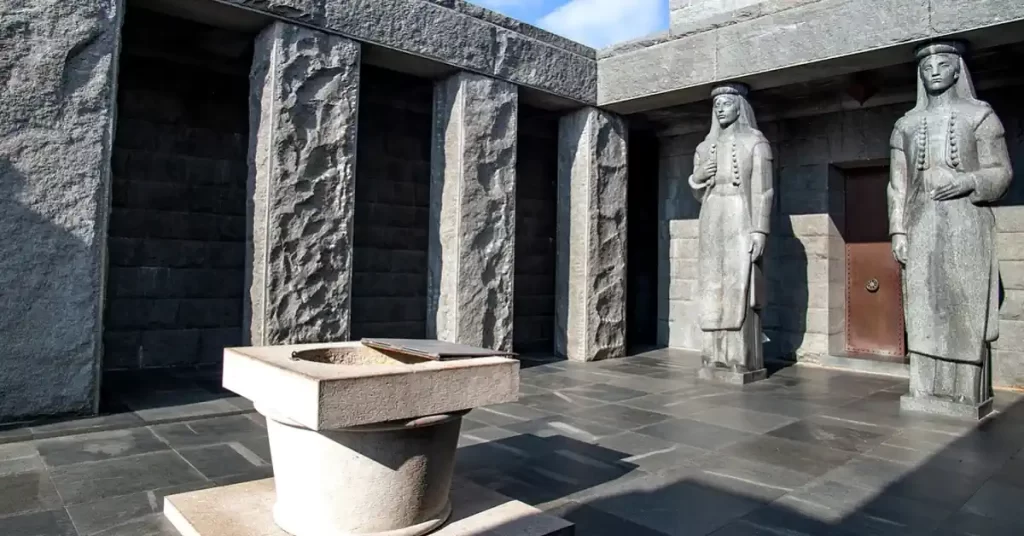
Njegos Mausoleum
Atop Mount Lovcen sits one of Montenegro’s most important cultural landmarks – the Njegos Mausoleum which preserves the remains of Petar II Petrovic-Njegos.
From the observation deck atop Jezerski Vrh, you can experience some of the best 360-degree views of Montenegro and beyond. Petar II Petrovic-Njegos, a 19th-century Montenegrin ruler and famous poet, had a dying wish to be buried here, amidst the grey peaks of the Lovcen massif. Hikers who have mastered the ascent to the top will have crossed a distance of 14,5 kilometers, measured from the trailhead down in Kotor.
There is a zip line just 500 meters north of the Nevjesta Jadrana Restaurant, offering an exciting ride above the rugged terrain of Boka Bay. Njegusi is a small hamlet close to there and is famous for its Njegusi Prosciutto and Njegusi Cheese. Njegos, who was buried in the mausoleum mentioned above, was born here and his birth house has been turned into a small ethnographic museum.
Tips & Advice
The Ladder of Kotor is a relatively arduous day hike due to the 930 meters in elevation gain and you still should consider taking some essentials with you and following these well-meant pieces of advice:
- hiking boots or at least good running shoes are a must
- bring a simple first-aid kit
- plenty of water, there is only one mountain cafe 45 minutes into the hike
- bring sunscreen and sunglasses in the summertime
- bring a charged phone or camera to capture your adventure
- go early in the morning to take the best photos, the fortress is in the shade in the afternoon
- choose a good-weather day, the trail is slippery when wet
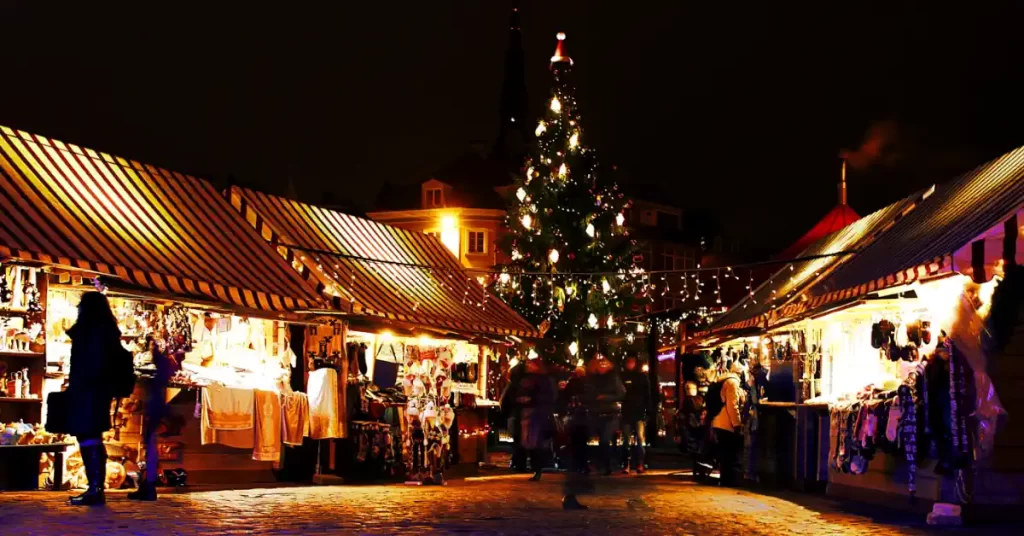
Things to do in Kotor
Here is a list of the best things to do in Kotor, from visiting the biannual carnival celebrations to great outdoor activities.